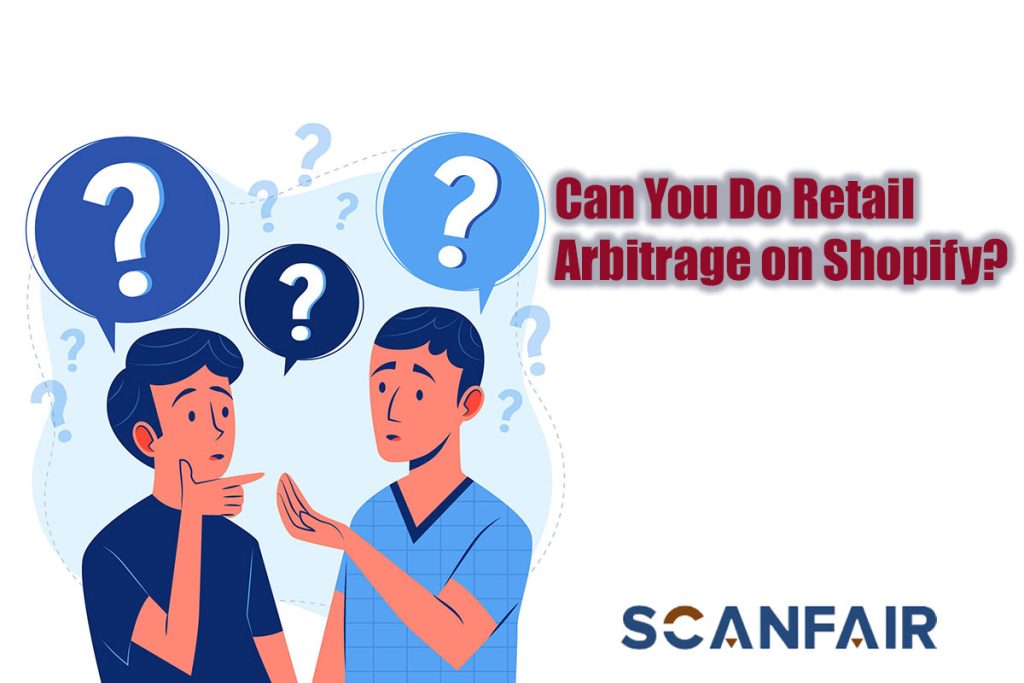The retail arbitrage world can seem quite intimidating, but it’s not as scary as it sounds. There are many easy ways to get started with it. However, one question that often comes up is whether or not you can do retail arbitrage on Shopify or another e-commerce platform. Well, the answer is yes!
What is Retail Arbitrage?
Retail arbitrage is a form of e-commerce. It’s buying in-store products, then reselling them online for a profit.
E-commerce is often called “online retail” or “online sales.” Retail arbitrage is sometimes called “brick and mortar arbitrage” because it requires you to visit physical stores (the bricks) to identify opportunities for purchase and sale.
How Does Retail Arbitrage Work?
Retail arbitrage is buying products at low cost and reselling them at a higher price. Traditionally, you’d have to do this in person and physically walk between stores, but online retail arbitrage can be done anywhere in the world using apps like Shopify.
With Shopify’s low-cost app store prices and business-friendly features, it’s no wonder people want to start their store on Shopify! But what if you’re considering starting a retail arbitrage business? Can you do retail arbitrage on Shopify?
Well… yes! There are two main ways to start doing retail arbitrage on your Shopify store: creating an affiliate site or optimizing existing websites for profit.
Advantages of Retail Arbitrage on Shopify
Retail arbitrage has several advantages over other ways of making money on Shopify:
- Faster turnaround time. Instead of waiting for a product to be shipped, you purchase it from a local store and sell it online. You don’t have to deal with slow shipping times since you’re not shipping anything yourself—just picking up what’s already ready to go in your local area. If you’re the type who likes things done quickly and efficiently, retail arbitrage is the way to go!
- No inventory storage costs. With traditional drop shipping or wholesaling, your products must be stored somewhere while waiting to be purchased by someone else (or sold at a higher price). With retail arbitrage, there’s no need for expensive storage facilities because you’ll never keep any item until someone purchases it; instead, everything can stay right where it is! Keep this in mind if your business needs space for its products—they may not even need much room!
- No shipping costs (if using Amazon FBA). Shipping costs are often an issue with other methods, such as wholesale or dropshipping, because these businesses require sending items from one location (where they’re made) across the country until reaching their destination customer(s). Retail arbitrage doesn’t have this problem since there are only shipments involved if you decide on using Amazon FBA service, which does incur monthly fees but allows sellers access to millions more buyers worldwide than locally alone could ever dream possible otherwise…
Disadvantages of Retail Arbitrage on Shopify
The first is that you will need much money to start. It is costly, especially if you are planning to open up one or more storefronts. The second disadvantage is time; it takes time to find items that sell well in your area and get those items shipped out to your store quickly. And lastly, if you’re not in the United States, there’s no point trying retail arbitrage because all of these sites will only ship within the country (unless otherwise stated).
Can You Do Retail Arbitrage on Shopify?
Yes, you can do retail arbitrage on Shopify.
Shopify is an excellent platform for retail arbitrage. You can also use it to sell on Amazon, eBay and other marketplaces. But there are some limitations to what you can sell on Shopify (for example, sex products or certain types of services).
Several third-party apps make it easier to perform retail arbitrage—a process where you buy products in one place and sell them elsewhere for a profit. These apps may be helpful to retailers who:
- Want to make money by purchasing items at a lower price and reselling them at a higher price (or vice versa)?
- Have an existing shop on Shopify but want help with inventory management or sourcing new designs from wholesalers.
The first step for those interested in using these apps should be familiarizing themselves with the basics of retail arbitrage so they can understand how it works and what risks are involved.
Conclusion
Retail arbitrage is not a simple concept to get your head around. It requires much time, effort, and some capital investment to be profitable. That being said, if you have these things, then there’s no reason why Shopify can’t be used for your business!

